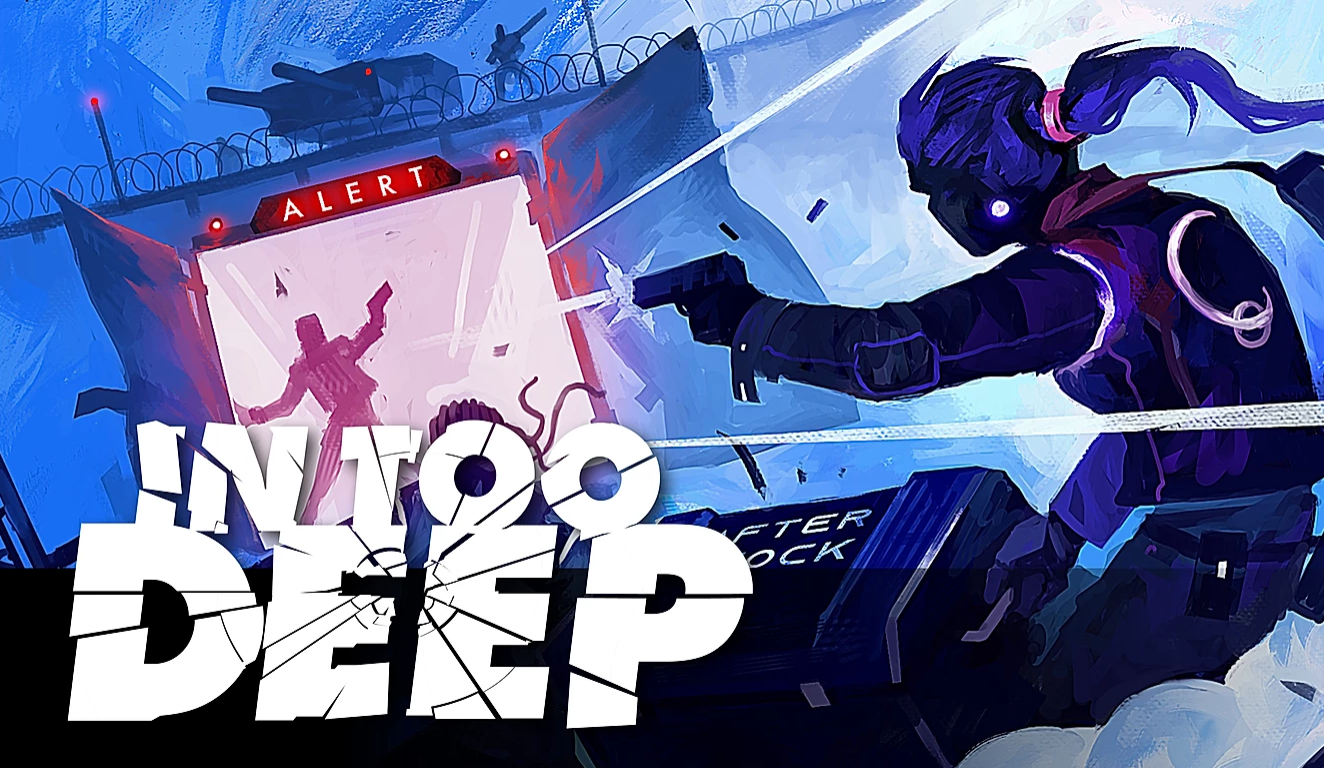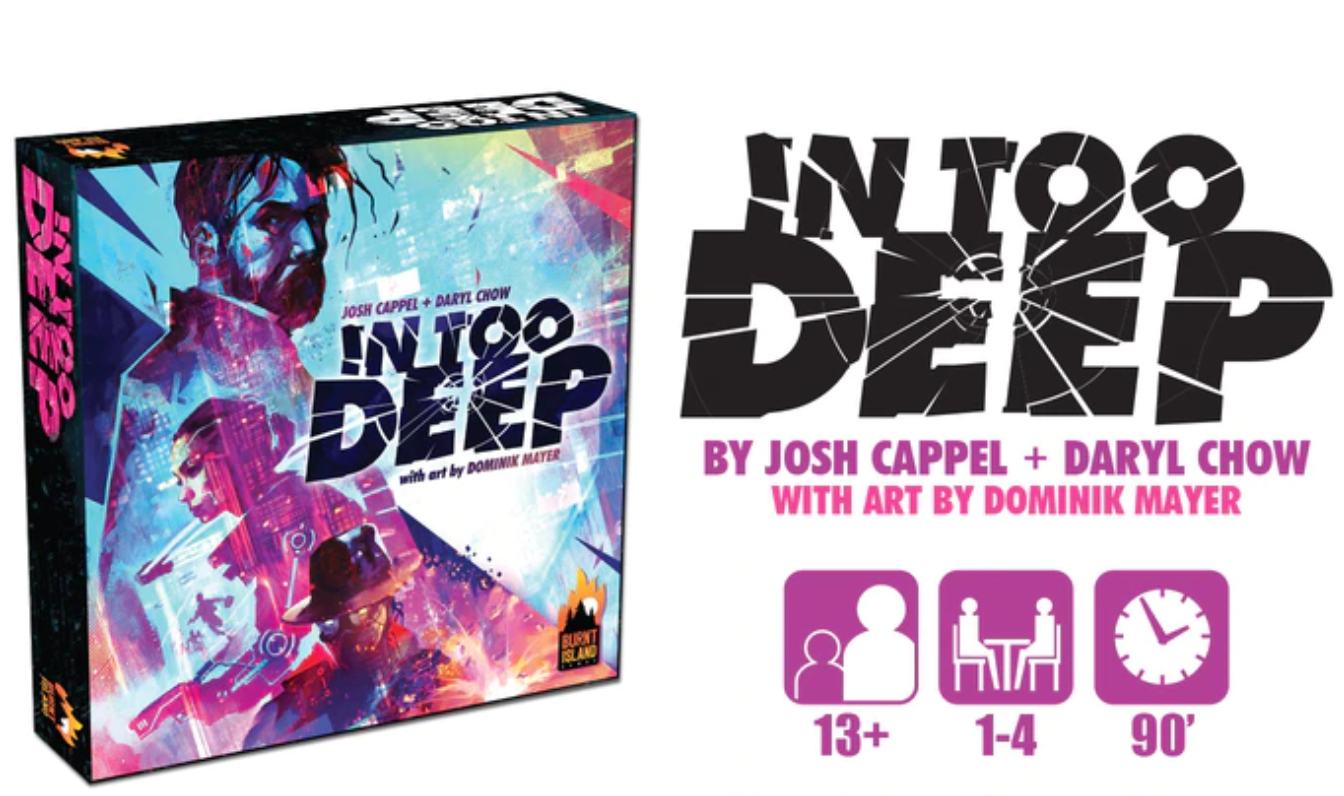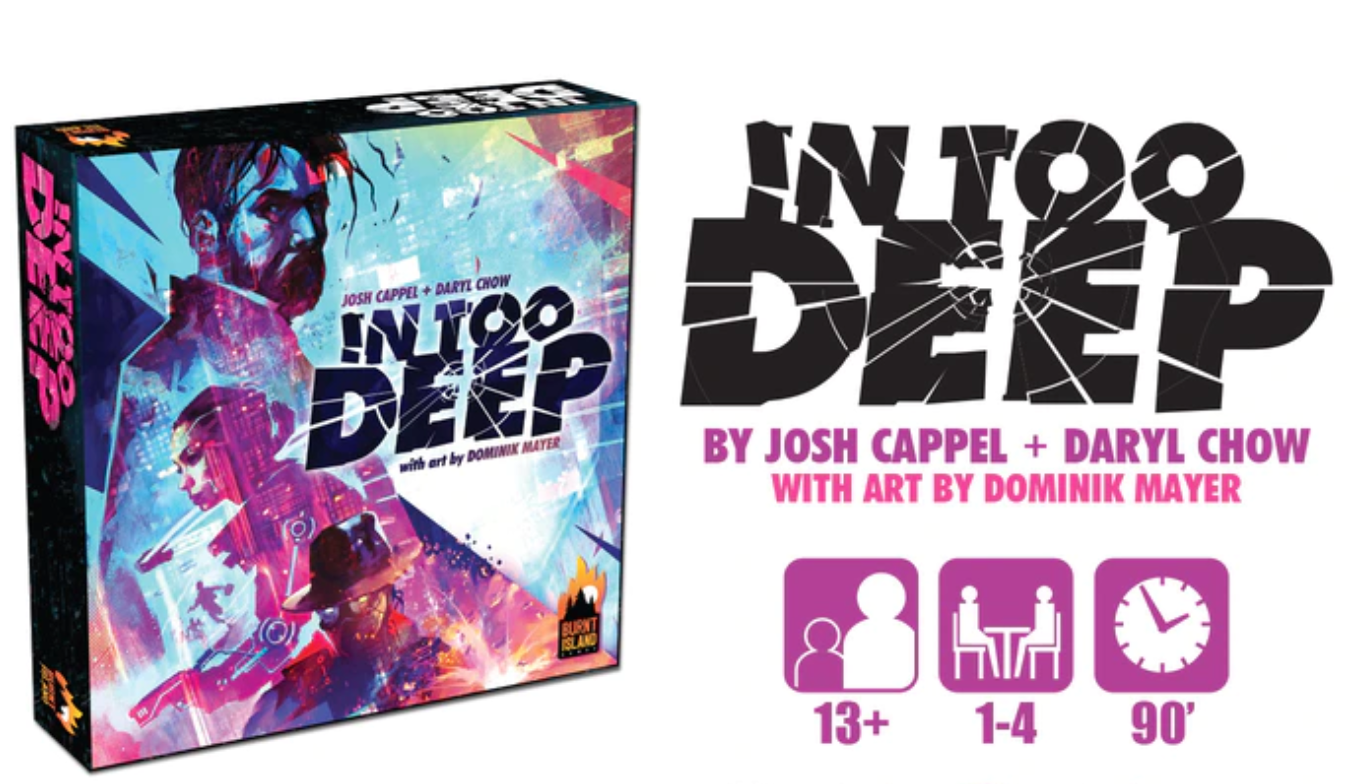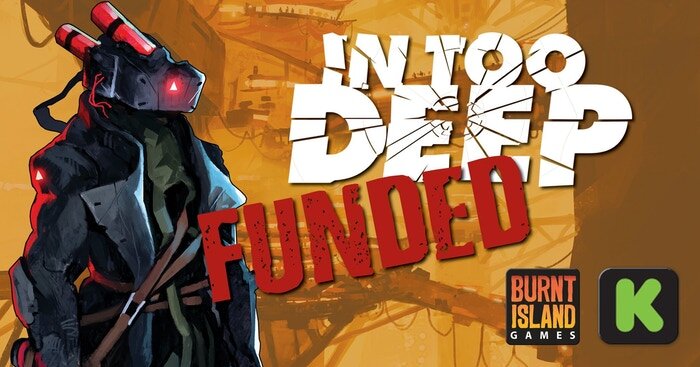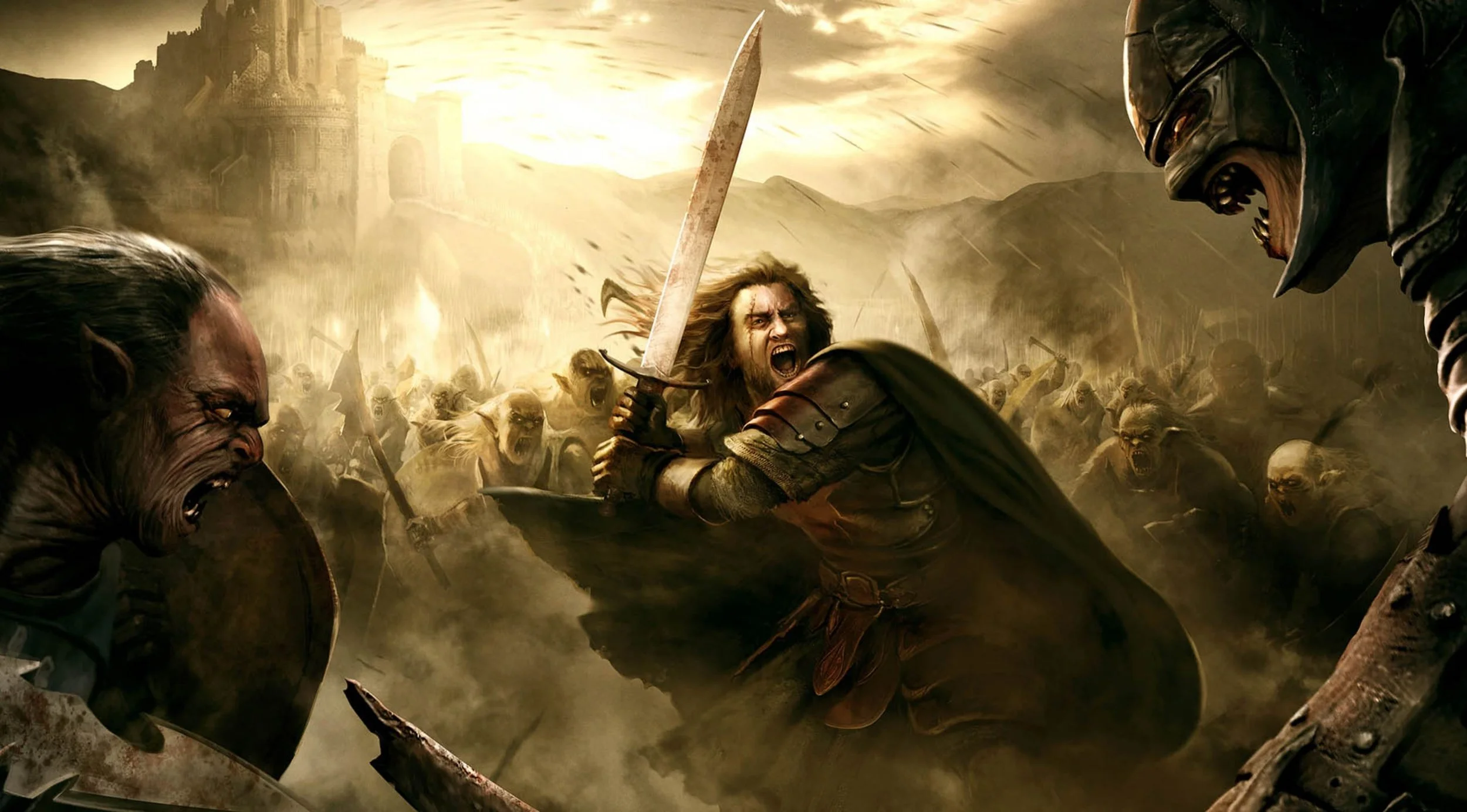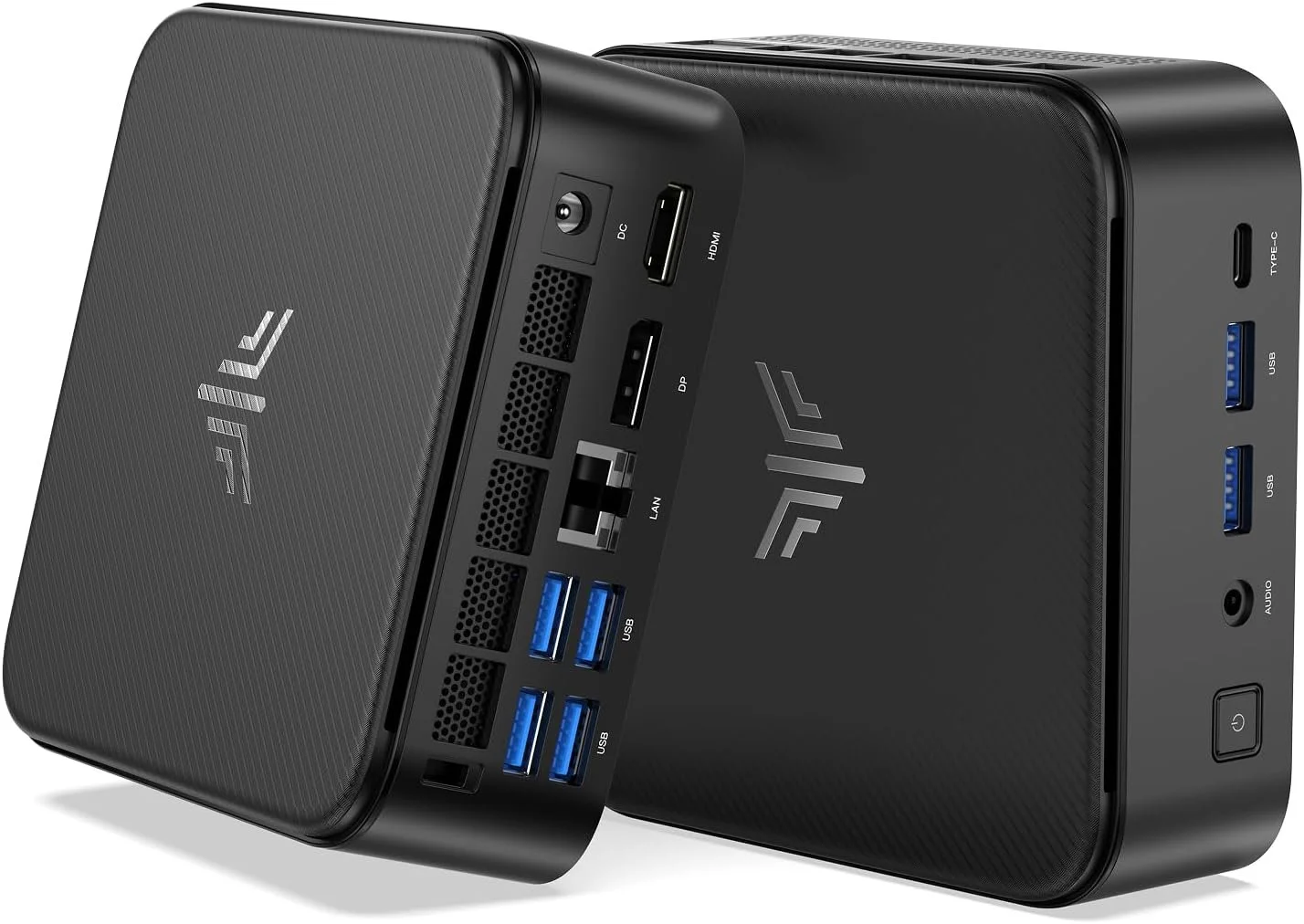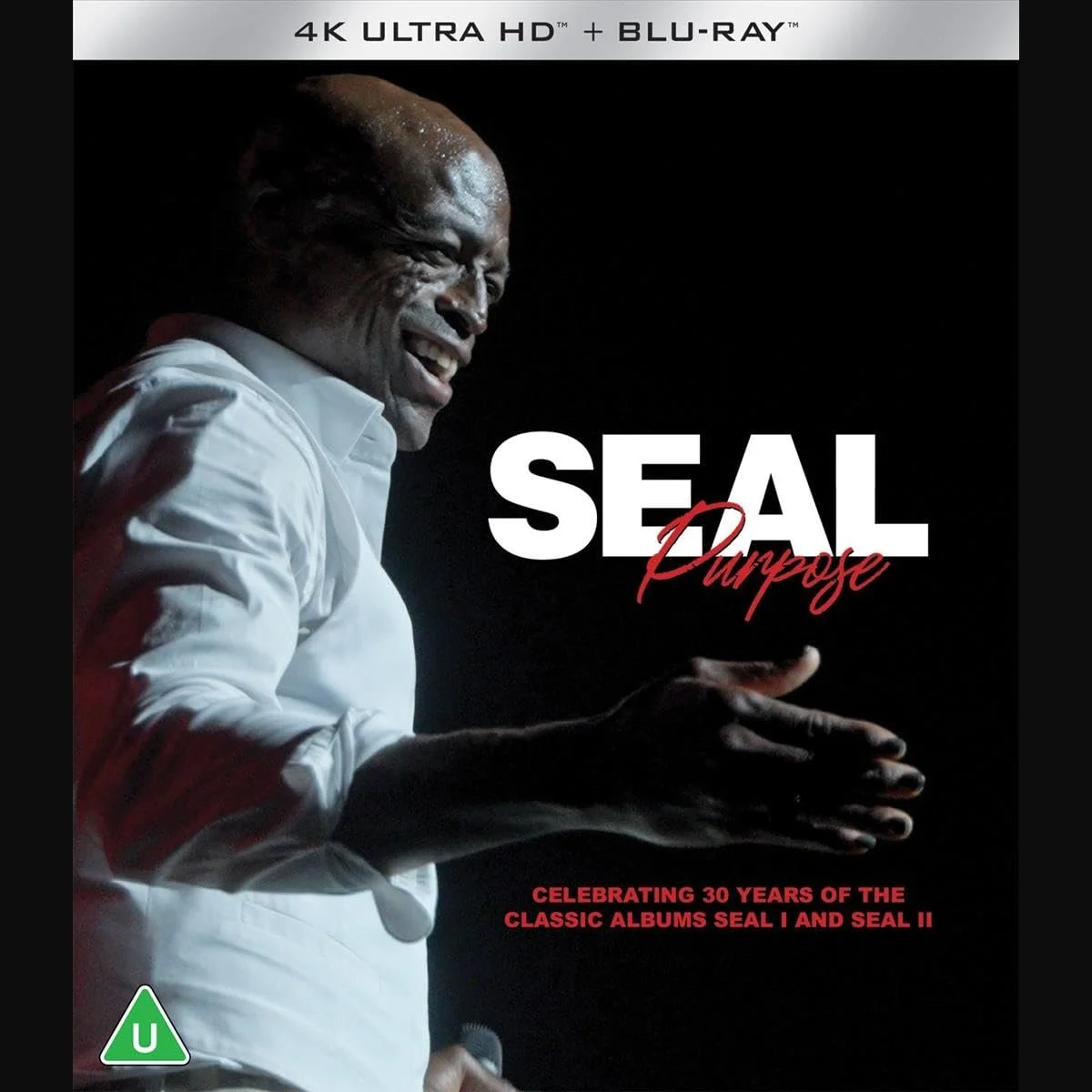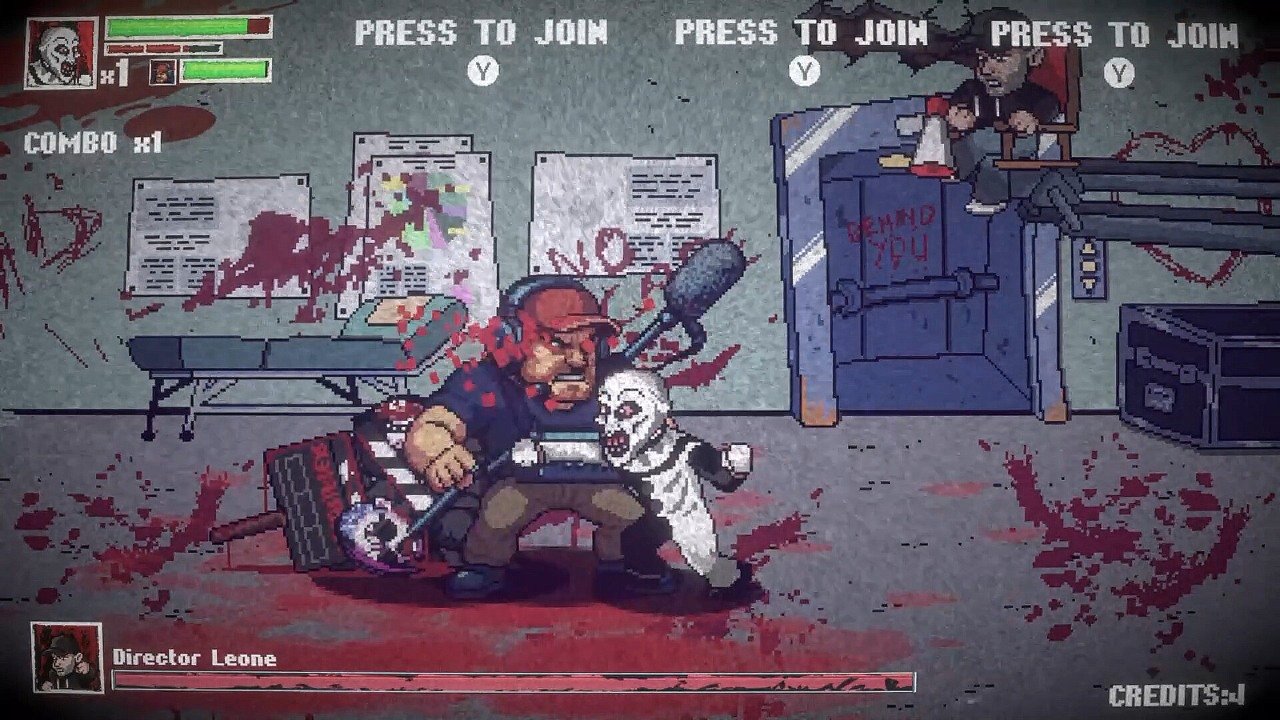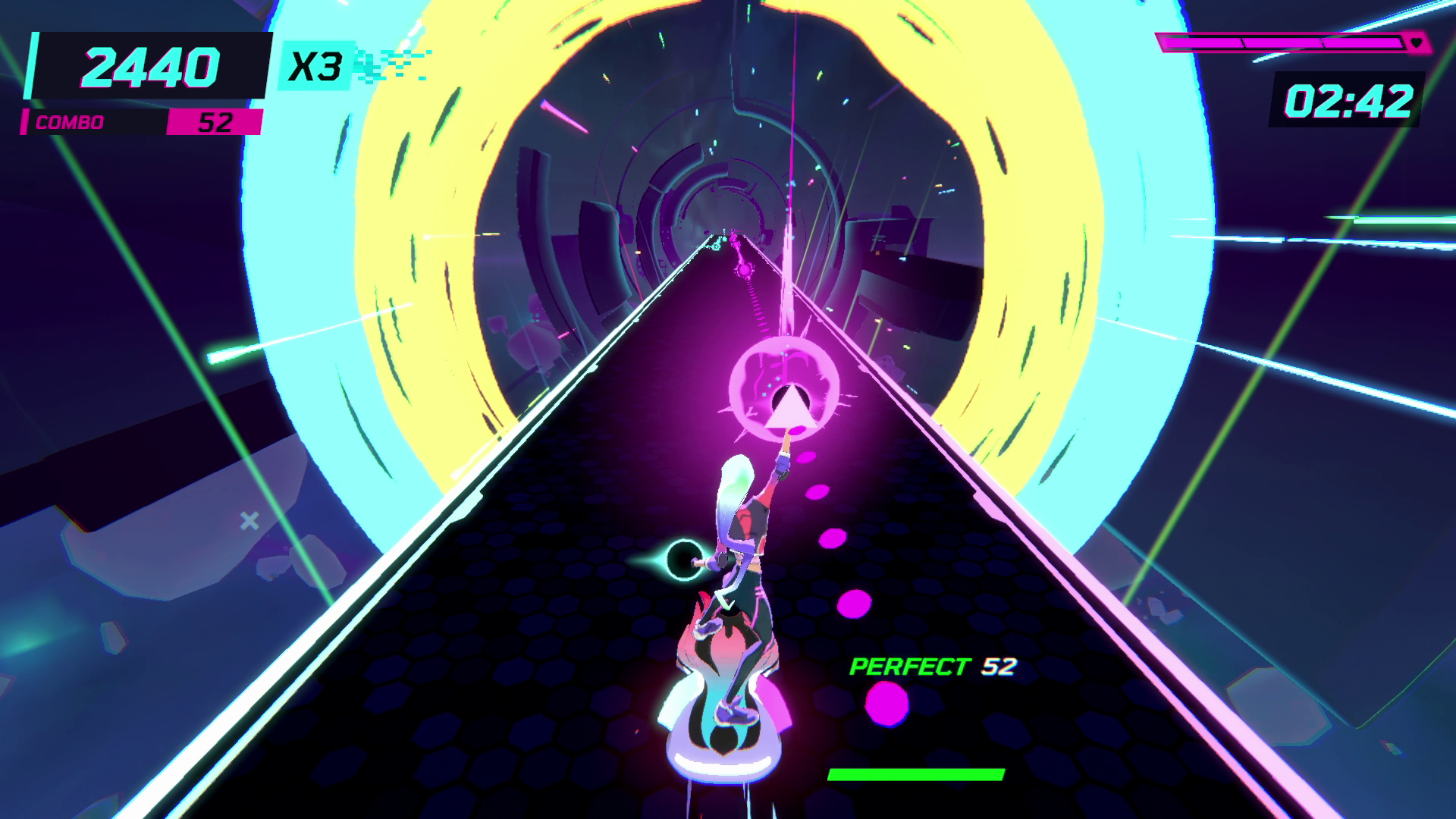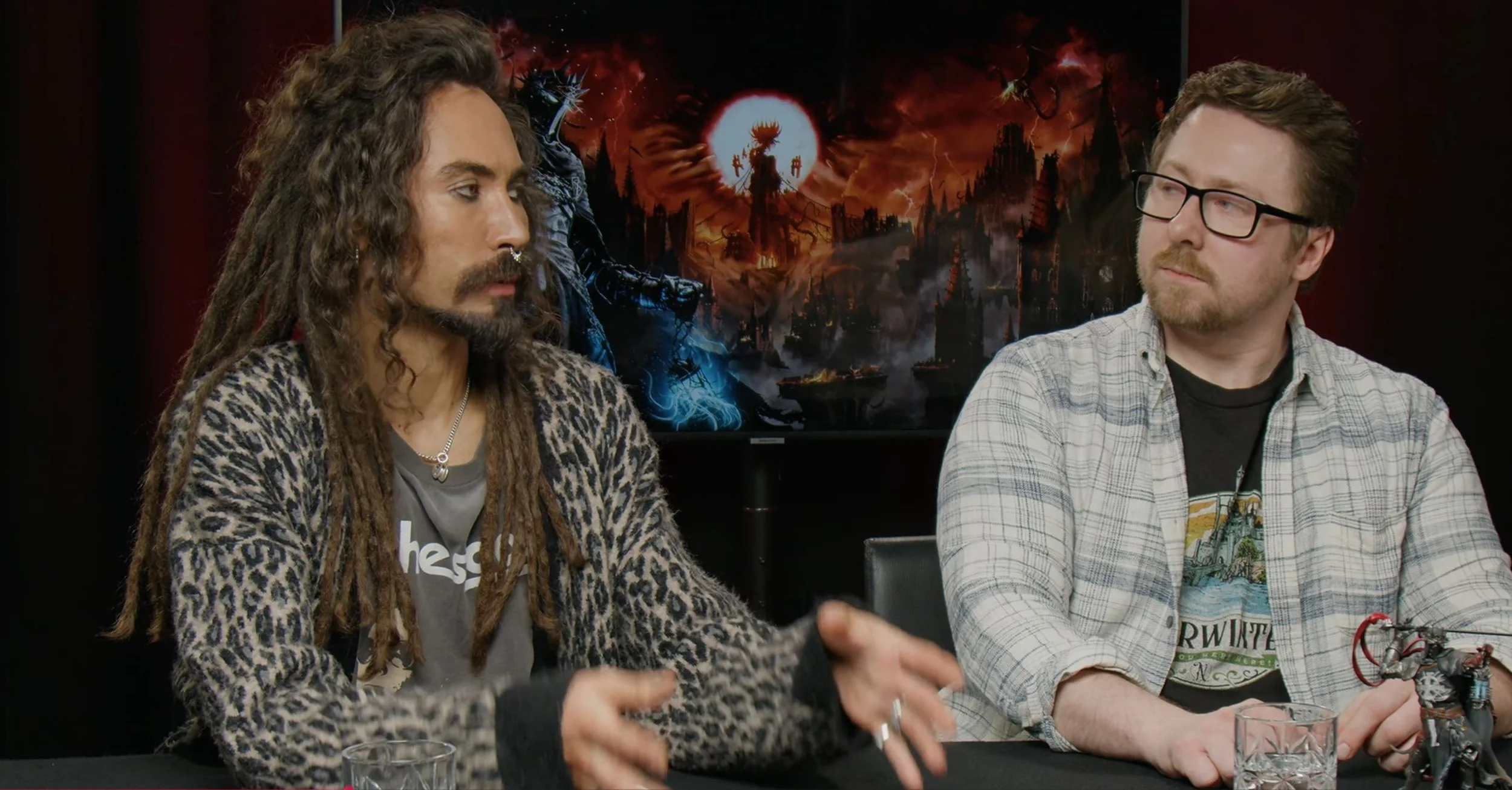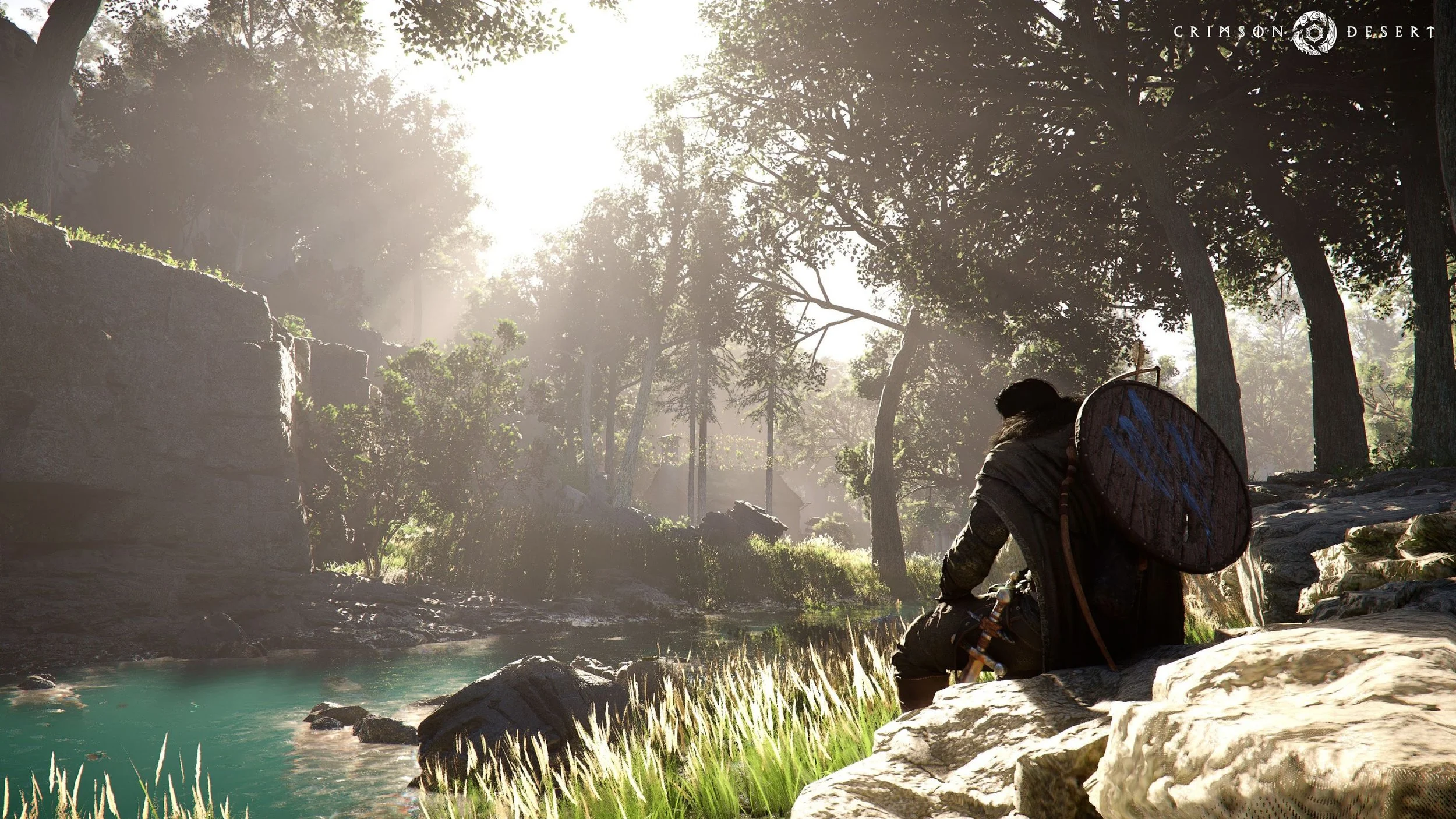Thanks to co-designer Josh Cappel, The Daily Worker Placement's Nicole Hoye, BoardGameCo's Alex Radcliffe, and Helaina Cappel for this super-fun playthrough of In Too Deep!
I’ve spent a decent amount of time playing In Too Deep through Tabletop Simulator with designers, developers, and other professionals in the boardgame industry. And while the platform makes some aspects of tabletop gaming a headache—and slows down the game for mechanics that would otherwise not be an issue with a physical copy—it does provide a lot of time for reflection.
While waiting for other players to think about their move and perform their actions, I was able to both reflect on my plans and strategies as well as consider what makes the game so exciting for me.
That’s why I felt it was appropriate to “upgrade” my first impression article into a full review.
If you’re not familiar with the devious puzzle experience, In Too Deep is an upcoming board game from designers Josh Cappel and Daryl Chow and tabletop company Burnt Island Games. It’s already fully funded on Kickstarter and now it’s blasting through stretch goals.
There are only a couple of days left in the campaign, so consider jumping on the hype train if you’re interested in the game.
STORY
The theme of In Too Deep involves undercover police work to infiltrate a criminal Syndicate and restore peace and integrity to a city under attack. It’s not the window dressing story that many games paint on in an effort to enliven the mechanics of the adventure. Everything about the narrative of In Too Deep feels fully integrated with the gameplay.
Each element strengthens the other, rather than existing in isolation.
Here’s the world of New Dawn City:
In the year 2087, central governments have fallen. What remains are fragmented city-states struggling to hang on to law and order while criminal organizations wait for the right moment to seize power. As a cop in a secret experimental program, you just might be able to turn the tide of illicit activity in New Dawn City and take back the streets for law-abiding citizens.
Cybernetic implants have given the criminal underworld a technological advantage. These underground market enhancements make them faster, stronger, and more agile than the average human, but you have found a way to exploit that power. By infiltrating their cerebral upgrades, you can gain control of these criminals like never before. Going deep undercover into the minds of your targets, you’ll need to participate in crimes of escalating seriousness to get your hands on the critical evidence you need.
Currently, there are ten Syndicate lieutenants that will feature in the main game. Four have been unlocked with stretch goals. And you can manipulate them, infiltrate them, and (to an extent) become them as you move through New Dawn City with impunity.
This is like a criminal version of Surrogates-meets-Gamer. And while those are two atrocious movies, this board game realization of a body-hijacking, mind-warping police investigation is downright delightful.
In Too Deep oozes theme in wonderful excess, dripping off the table and getting stuck in the cracks between the hardwood floor.
GAMEPLAY
A single turn of In Too Deep can be extraordinarily simple or ridiculously complex. A player might Hook into a new criminal, gain Grip, and then move once before activating a power. Or… they might Hook into another player’s criminal, gain a Dilemma card, gain Grip with multiple Syndicate perps, activate two Boosts, complete the requirements for a Side Crime, move and perform an action with one criminal, perform four more actions with another criminal—thus expending their precious Grip with that character—before finally completing the convoluted prerequisites for a high-level Story Crime.
Both things could happen. It just depends on the particular game, the combination of criminals, and the players.
In the live playthrough above, there were multiple instances where Alex from BoardGameCo continued a chain of moves and actions that took longer than the rest of our turns combined. It was beautiful to watch and it underlines the extreme of what’s possible in this game.
While the visual display on the table and the intertwined rules and chapter phases might all seem too much, each turn is actually quite simple.
Here’s how a turn operates in In Too Deep:
1) Hook into a criminal, either from the available pool in the middle or from another player’s mat. This is optional if you already have one or two criminals on your own playmat.
2) Gain Grip on all Hooked criminals, increasing the depth of influence you have over these Syndicate baddies.
3) Perform two actions—moving, activating location powers, using criminals’ powers.
4) Complete Side Crimes—which can be resolved at any point during your turn whenever the requirements are met—and Story Crimes, which occur at the end of a turn and result in unhooking from all criminals on your playmat.
The gameplay is smooth and fast, but the time and complexity come from what you are able to achieve during your turn. The more imaginative you are, the more you can get done.
Balanced with the turn progression, though, are other gameplay mechanics that turn In Too Deep into an ever-shifting power struggle with corruption on one side and honest police work on the other. Players will pursue smaller investigations in each chapter, as well as the final case against the Syndicate at the end of the game. All of these are dictated by the gathering and filing of evidence. Done properly, the investigations will successfully close and the case against the Syndicate will succeed. Managed poorly—or derailed by corrupt players—and all of the police work might be for naught.
Considering your options every turn involves not only the successful completion of Crimes but also the decision of how you approach the results as a player. Will you do the least amount of damage and file the most Evidence? Or will you lean into the predilections of the criminals you’re hooked into?
These decisions matter and the implications of what you choose may reverberate throughout the rest of the game. It’s nicely tied together and it supports the narrative structure of the game.
Three chapters divide the game, and that progression will allow players to dive further into the minds of these criminals. Turns become more effective. Crimes become harder to resolve. And the rewards become greater, along with the risks.
At the end of the game, either the Syndicate’s plans were foiled or the investigation fails. One of the players will have gone too deep. It just depends on whether that matters at all.
VISUALS
I love the cyberpunk visuals in the game.
Dominik Mayer has done a great job in creating a convincing world of digital crime, sci-fi technology, and the criminal underbelly of New Dawn City.
Contrasting city locations are accompanied by the cool blues, pinks, and reds of data-centric layouts. Bright yellows and calming pastel colors mark all of the significant components and miniatures so reading the state of the board is really easy.
Obviously, there are quality and content differences between the retail editions and deluxe Kickstarter editions of the game, but my experience with Burnt Island Games has taught me that you’ll love what comes in the box.
REPLAYABILITY
This is a game in which replayability is part of the DNA. It’s designed to introduce variability. I’ve played with six of the criminals, but now four more are joining the Syndicate’s ranks! That’s certainly going to spice things up, especially with the newly-unlocked Fixer, who can activate Zone powers from afar. That’s a super interesting move that I’d like to explore in future games.
Also, more Crimes means more options for players to score Intel and Evidence.
The designers have even addressed one of the weaker parts of the games—the Sentinel—with the mini-expansion reveal today that improves what the Sentinel is capable of and how to use the police unit to affect gameplay.
So, I think there’s a lot of stuff already in place for In Too Deep to stay on the table for a strategy game group many times over. And if the fifth-player position is unlocked by the end of the campaign, even the player count will be able to accommodate more gaming scenarios.
WHAT IT COULD HAVE DONE BETTER
Typically, games release and then must be revised with new editions or augmented with the release of expansions.
Kickstarter board games have their own issues, but one of the things that I like about the system is the integrated method of releasing additional content through stretch goals. When a game funds successfully, it starts to unlock stretch goals that often give the extra oomph needed to provide a game with more depth and replayability.
In Too Deep is already following that pattern, with four additional Criminals unlocked and more Crimes for players to enact.
Almost doubling the Criminals in the game will definitely improve longevity. Different powers, combinations, and possibilities arise whenever that boost is added to the game. I’m excited for what other stretch goals are unlocked before the campaign finishes.
VERDICT
In Too Deep is an innovative board game that really feels different from a lot of what I’ve played over the last year. The unique gameplay will appeal to strategy gamers and those who love a good puzzle. Its engaging story is anchored in the mechanics and I can’t wait to get my hands on a physical copy and share it with my friends.
Wrapping your mind around the intricate puzzle of a turn is like playing Sudoku in The Matrix while trying to hack into the mind of a criminal. If that doesn’t sound like fun, I don’t know what is.
If you want to back the game, check out the Kickstarter page here and get all of the Facebook updates from the Burnt Island team here.




